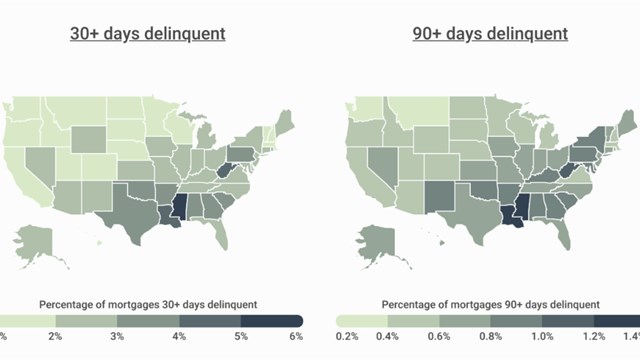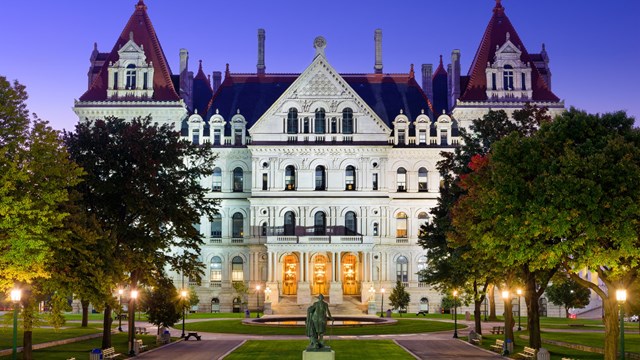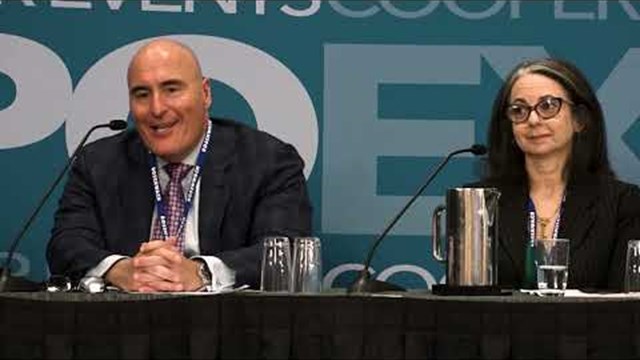Last spring, amidst the panic and confusion of the burgeoning pandemic, condominium, co-op, and HOA communities were faced with the difficult task of deciding what to do about their shared amenities. Gyms, pools, clubhouses, and other popular amenities were closed as a hedge against infection by a little-known enemy—though community leaders and boards of directors hoped at the time that the closures would be temporary. The thinking was that as more was known about the virus and its transmission, and then as the pandemic waned, a return to normalcy would await us.
Now, a full year into the worst public health crisis in over a century, we seem to be faced with conditions not much different from back then. While our knowledge about the virus is certainly greater, and mass vaccinations are underway throughout the United States, we’re still facing a second summer of COVID-19—now with new factors of increased costs and liability, continued misunderstanding of the short-, medium-, and long-term realities of COVID-19, and perhaps most difficult of all to maneuver: politics.
At the heart of the matter is whether boards and residents are comfortable with reopening, and what the basis for their decision to do so or not is. “Most adoption of rules for reopening gyms are born out of Department of Health and Governors’ office recommendations and regulations,” says Dan Wollman, CEO of Gumley Haft, a real estate management firm in New York City. “In those buildings where we have opened or are planning to open gyms, we are suggesting a ‘one person, one family,’ policy. In New York, the Department of Health does a virtual inspection, starting with your building canopy to confirm your address. They then render a decision of whether or not you can reopen based on a video tour. It takes some time. With respect to other amenities—for instance, we have one building with an open-air space on a garage roof with benches, trees, and walkways—rules were promulgated by board members with our counsel, using reasonable common sense based on how one can catch COVID-19. For example, they instituted time limits and sign-ups to use the space.”
Liability
Perhaps the greatest impediment to communities reopening their amenities—even in full compliance with CDC and other health department recommendations—is the fear of liability. Surveys of insurance providers and brokers have indicated that insurers have taken a position against most if not all COVID-19 claims, stating that viral infections and whatever results from them are excluded under existing coverage and policies. Insurers refusing to entertain any claims potentially moves liability to associations, corporations, and even individual board members—a risk many are loath to take on. Hence, there is a high likelihood that many community amenities will simply remain closed this spring and summer.
Joe Balzamo is the COO of AR Management, a property management firm located in New Jersey. According to him, “One of the biggest problems right now in terms of opening amenities is that insurance companies don’t cover viruses, etc., as part of their coverage. The impact is simple: if someone gets sick and sues the association, there’s no ability for the insurer to validate the litigation. Associations would own the litigation and the claim. All the risk is on the association.”
Glen Masullo, president and managing partner with Preferred Community Management Services located in Somerset, New Jersey, concurs. “A major block to unilaterally opening pools and other community amenities is legal issues. Insurance doesn’t cover these claims currently. Members of the board, association, and even vendors can be sued personally. As concerns this coming season,” continues Masullo, “the insurance issue hasn’t gone away.”
“There are always liability concerns,” says Scott Piekarsky, an attorney with Phillips Nizer in New Jersey. “People may get injured due to the pandemic through infection. We have these concerns again this year—people getting ill, and the ramifications of that. Aside from health and safety and legal compliance, one big issue is what insurance companies will cover. A condominium association is a business, and boards have a fiduciary duty to protect the members. We are hearing now that if someone gets COVID and sues the association, insurance will not defend or indemnify. No defense and no payout, until this is adjudicated. Coverage litigation actually started last summer, and I think we’ll see an increase in cases—we’re seeing it now, and eventually we may have a category of cases called ‘COVID-19 cases’ being filed in the courts.”
Cost
Another serious issue facing boards if they decide to reopen their amenities is the cost involved with doing it. Various agencies at the state and local levels have established rules for social distancing, masking, and cleaning; some even have requirements for extra cleaning staff and personnel to observe and maintain crowd control within the amenity area. Such rules may make it impossible for some communities to foot the additional costs involved with reopening.
Stephen DiNocco, a principal with Affinity Realty and Property Management, located in Massachusetts, recounts that last year the board of health that governs some of his communities “made such difficult rules that many communities couldn’t open.” In one case, he says, “the property had more than 1,000 residents, but the regulations didn’t permit more than 20 people in the pool at one time. After one use of the bathroom, it had to be cleaned and disinfected. The children’s pool wasn’t permitted to be used at all. Many boards are saying it’s just not financially practical to reopen. Too much additional personnel for supervision and logistics—they can’t afford the extra staff.”
Understanding the Realities of COVID-19
Another factor in planning for the summer and the future in general is the way board members and residents of condominium associations and co-op corporations understand and view the crisis. Is it long-term, or will it end and life return to pre-pandemic reality?
The facts on this are still unclear, but there is a growing consensus in the medical and scientific communities that COVID-19 will be with us for a long time, if not forever. While the national vaccination campaign is underway, increasing evidence points to this virus looking a lot more like the flu (reemerging with varying severity each season) than something like polio (eradicated completely after vaccination of the general population). It’s unlikely that vaccination for COVID-19 will be ‘one and done.’ Some of the current vaccines require two doses, and with talk of new variants daily, experts are increasingly suggesting a booster shot will be needed, most likely on an annual basis.
According to DiNocco, “One thing that has been in the back of people’s minds is that this is a temporary situation, and will end. So they ask themselves, ‘How much effort should we put into it?’ If unit-owners are thinking short-term, or even medium-term, and they don’t believe the changes required to live with COVID-19 are permanent, they are less likely to institute rules changes that are effectively life changes, nor to spend the money to do it.”
The other factor DiNocco points to is that “people don’t want to be around others who aren’t in their bubble—so why would we make a decision for their community allowing something that they wouldn’t do themselves right now?” He expects a lot of people to say that keeping amenities closed or limiting their use is no big deal for now, and to be willing to accept these decisions. “There isn’t much interest in reopening,” he stresses. “I’ve only received one request to reopen the gym.”
Politics
Lastly, possibly most importantly—and sadly—unlike any such crisis before it, the COVID-19 pandemic has been starkly politicized. Numerous professionals contacted for this article stressed that the decisions about reopening a particular community’s amenities and the rules that will apply to it are often reflective of the political culture of that community. There are those communities where mask wearing is required and those where it is rejected, regardless of expert recommendations or evidence that masking greatly reduces the spread of the disease.
One manager says, “It’s like ‘Invasion of the Body Snatchers.’ I don’t recognize some of these people whom I’ve known for years. People actually put their politics before their own good.”
Many pros say the biggest pushback against masks or continued amenity closures may be in over-55 communities, where residents—more and more of whom are finally getting vaccinated—want to return to some kind of normal, and are campaigning for reopening. While that may be understandable, says Masullo, “No senior who hasn’t been vaccinated should get within six feet of anyone else. Many are having difficulty getting vaccinated. We will help residents get appointments in senior communities to do vaccines in clubhouses, etc. I tell them that if you’re managing a senior community, you should not open amenities. It could mean millions of dollars in lawsuits. Don’t open the pool until the science tells us it’s safe.”
Which brings us back to the matter of liability. One manager describes a situation where the board of a particular community was dominated by three attorneys who resided in the building. Early on, they implemented a very strict policy of mask wearing, social distancing, and closure of amenities. Many residents were unhappy with the policy—some quite vocally—but these attorney board members told the complaining residents that if they disregarded the rules, liability for any damages resulting from their disobedience would fall squarely on them individually—the condo wouldn’t share in the responsibility. Needless to say, the revolt was squashed as quickly as it began.
Along the same lines, Wollman relates the circumstances in a luxury, 12-unit condominium in Manhattan. He says that there was such a divergence in opinion about opening the building’s amenities that he opted to go unit to unit and speak to each owner separately, rather than just the board. He stressed in each conversation that despite the small overall number of units and residents in the building, the risks were still too high, and that the best option was to wait a bit longer to open things up until more widespread vaccination reduces both the risk and the tension around the issue. He is in all probability correct—and no matter what one’s politics, we can all agree that the sooner COVID-19 is in the rearview, the better.
A J Sidransky is a staff writer/reporter with CooperatorNews and a published novelist.










Leave a Comment